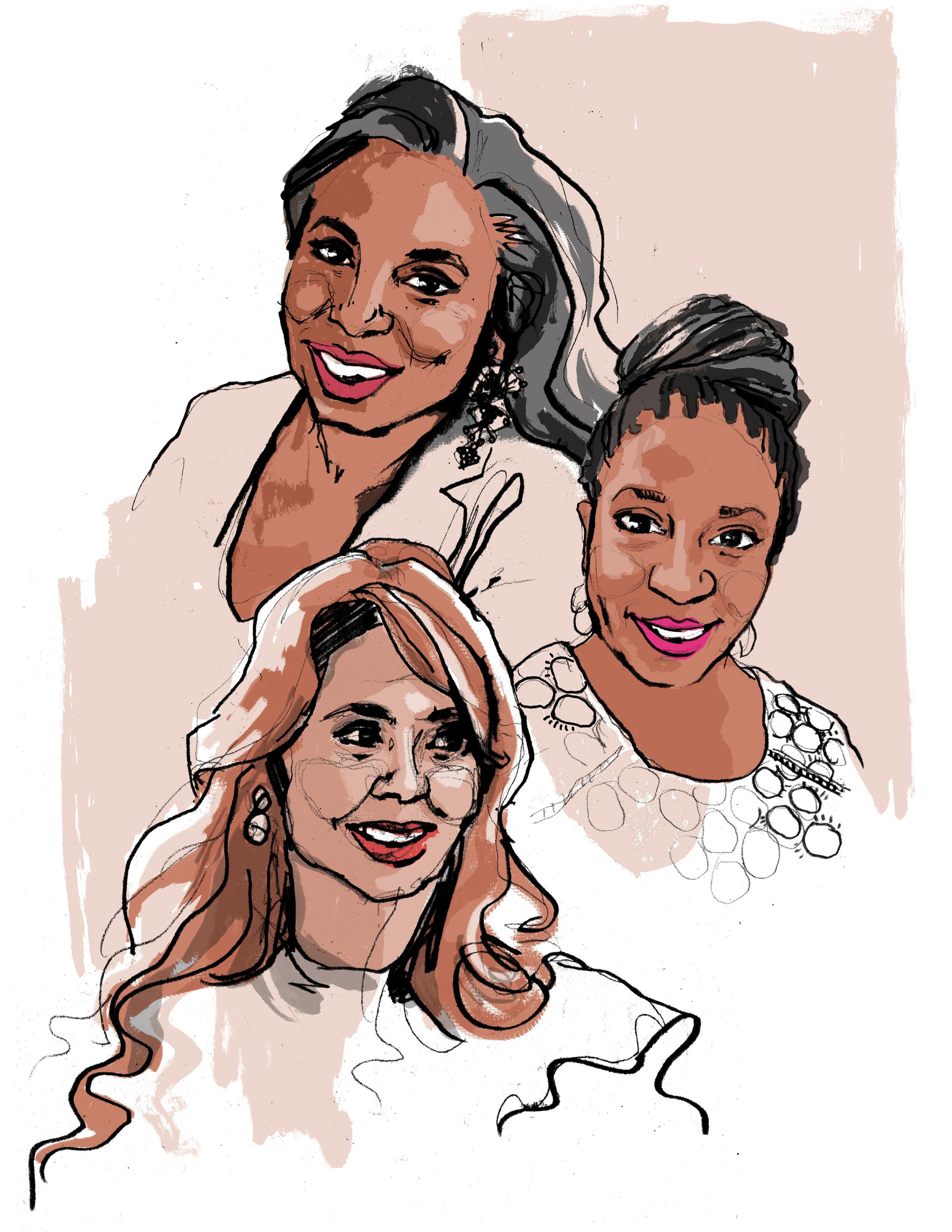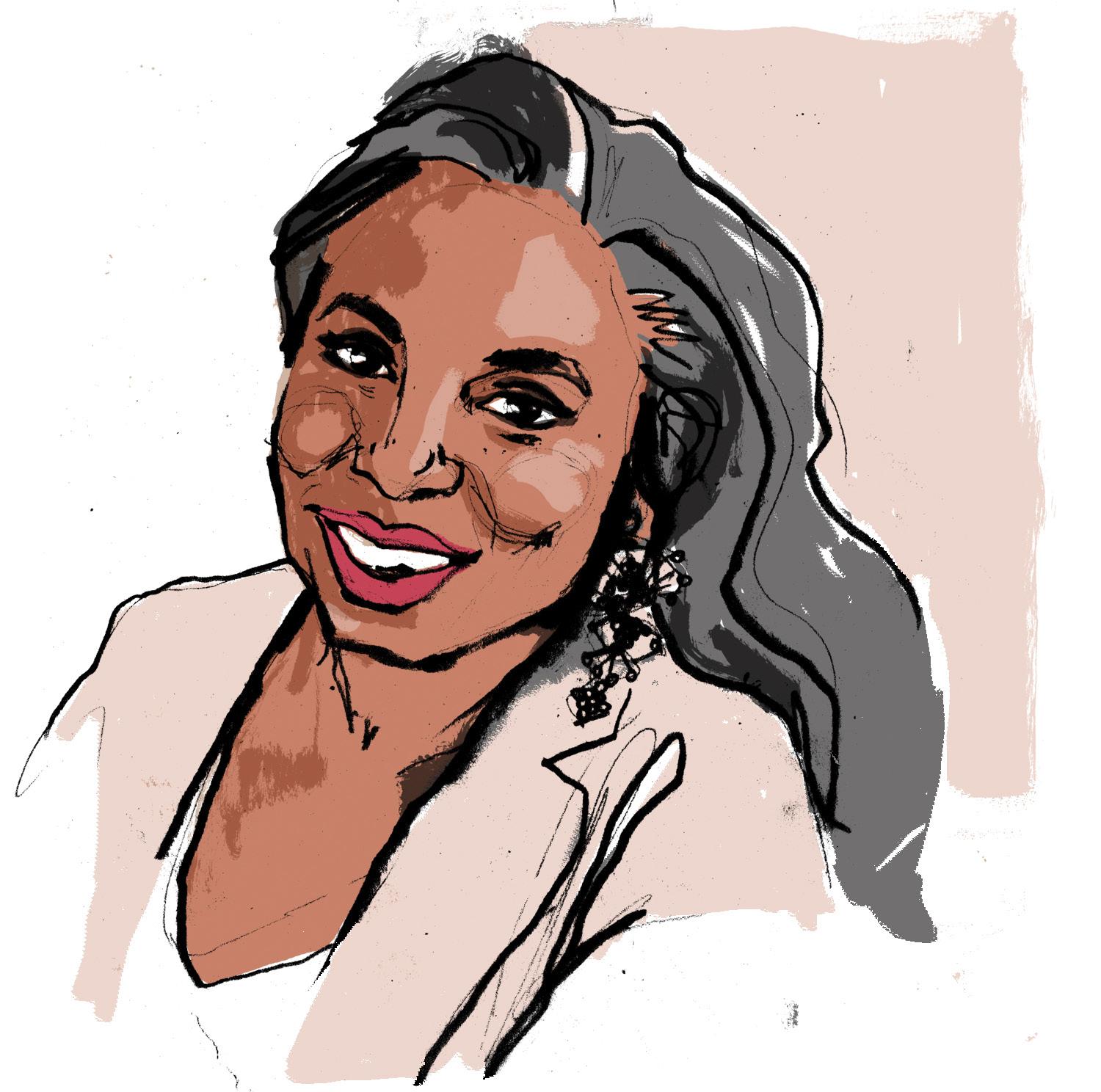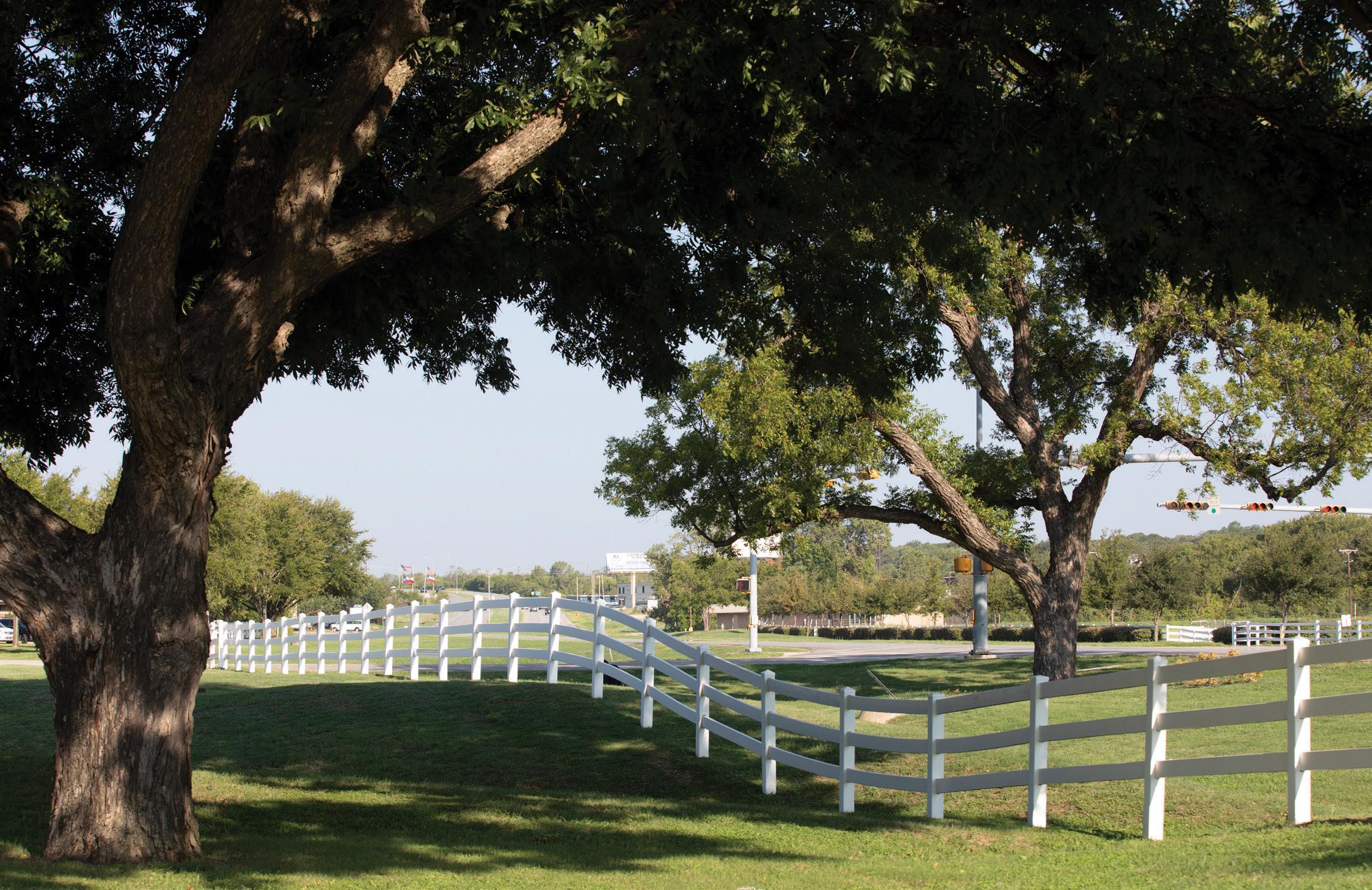
20 minute read
School Colors
from DFWChild August 2020
by DFWChild
If the last few months have taught us anything, it’s that we can’t treat racism like a distant memory. White parents may believe that racism doesn’t exist in schools today, but if you ask a Black or Latino parent, you’ll hear a different story. While said racism might not be as blatant as Jim Crow, it’s evident in white-washed reading materials and the assumptions made about students of color—and it’s taking a toll on kids.
Three moms of color gathered with us (via Zoom, of course) to shed light on the difficulties they and their kids have experienced in the classroom, and what they say all moms can do to make school a welcoming place.
Advertisement
Frances Cudjoe Waters, who is African American, lives in Dallas with her three teenage sons and her husband of 24 years. The Stanford and Harvard Law alum is now the CEO and founder of The Dallas Renaissance, whose goal is to celebrate African American culture and change the narrative for Black children.
Shonn Brown, also African American, lives in Dallas with her three children and her husband. She attended Southern Methodist University, where she now serves on the executive board for the Dedman School of Law. She is also vice president and deputy general counsel at Kimberly-Clark.
Suleyka Scribner, who is Latina, lives in Fort Worth with her 11-year-old son and her husband Kent Scribner, the superintendent of Fort Worth Independent School District. Education is a family affair—Suleyka, a Northern Arizona University grad, is an instructional coach for Castleberry ISD in Fort Worth.
Could you tell me a situation that sticks out in your mind when race affected your education?
Frances Cudjoe Waters: My parents are both first-generation college students, and we moved to Massachusetts when I was about 6, from New York. There were three Black children in a white suburban school, and they assumed all three of us should be in special ed. They didn’t test us or anything—just put us in the special education class. Fortunately, my parents knew how to be advocates. They said, “Well, just test her. Let’s just be sure.” They found I could skip second and third grade. So the bias was just there from the beginning. I learned at the age of 6 [or] 7 years old we have to learn how to be an advocate in education for yourself. My parents modeled that for me. Had they not done that

for me, my life would’ve been very different. Instead of ending up at Stanford and Harvard Law School, I would’ve gotten bored, and I loved to talk, so it would have been a behavior problem, right? I might’ve ended up in a very different place.
How did your experience affect the way that you molded your kids’ education? Frances Cudjoe
Waters: My husband and I have been very deliberate about making sure that we monitor our children’s education. We don’t just have to think about, What’s the best place academically? We have to think about, Where’s my son or daughter going to be treated fairly? Do they have diversity in their staff, and do they embrace diversity? Even if they have it in their statement, will my child be comfortable here?
The journey for finding the right school as a Black mother has been much more complicated. I certainly have had situations where our children have had great experiences, but others where we knew there were some issues around race that came up. Our [non-Black] friends have no idea what we as African American moms are dealing with. I was petrified about my boys starting to drive because I know what’s happening. One of them already has had a situation where he’s been profiled. It shaped my education as a child, and it certainly has shaped my experience as a mom.
How do you feel like racism in schools affects
your children? Shonn Brown: It’s not just them being treated a certain way in a particular environment. It’s the mental toll that environments take on these kids because the curriculum and the experience are not really set up for a diverse educational environment. They don’t see people who look like them. They don’t read about people who are successful who look like them. Every example that they have, in many instances, are of white people, and so it kind of creates this vision in your head as a Black child that the successful person is white, and everybody else who looks like me is not successful.
As a Latina, did you experience racism or implicit bias growing up? Are you still seeing it
today as an educator? Suleyka Scribner: I grew up in a border town as a Latina girl, but one thing that I knew growing up was that there are different classes of Latinos. We have all the social classes, and so that was basically all I saw growing up. Then, when [I went] into urban cities such as Phoenix, Arizona, or even coming here to Fort Worth, I was taken aback to think that when you’re Latino, it equates [to] poverty. “Oh, you’re Latino. You’re really good at making tacos. That’s great that you might be bilingual, but you probably mostly speak Spanish, poor child.”
As an educator, when I come into a classroom, I do see that a lot of our teachers have these implicit biases of our Latino students and our African American students. They really have not addressed it, even though they are thinking, We’re having Cinco de Mayo, or We’re celebrating African American month—that
checks the box off to say that they are culturally relevant in our schools. Those things are important, but it is not the full picture, by any means, of what it means for educators to really step into the shoes or really understand their students.
Shonn Brown: I feel like a lot of that is rooted in the fact that a lot of our teachers don’t have a diverse experience themselves. The only Latino people that they know and the only Black people that they really think they know are tangential, because they maybe have worked with them, or they see them on TV. They assume that the people that they meet that are Latino or African American are like the folks they see on TV or like the images that are portrayed on the news, and they haven’t taken time to develop true relationship with anybody who’s not like them.
My kids go to private school. They assume my son plays football or basketball when he walks through the door. They don’t assume he’s there because of his educational ability. They don’t assume that his parents are paying full freight for him to be there. They are very pleased to say, “Look at the diversity of our school. We’ve got these Black people here and we’ve set aside one month to talk about their history. Aren’t we doing a good job?” Absolutely not, but they’ve been sort of ingrained to think that I’m not a racist because I’m a good person, and they haven’t really done the deep work to actually create relationship with people that aren’t like them. ABOVE // Frances Cudjoe Waters is a mother of three and a graduate of Stanford and Harvard Law.
Frances Cudjoe Waters: We have to, as moms, She founded The Dallas Renaissance, dedicated to celebrating Black culture and shifting its narrative. do that deep work. We work hard to make sure our children don’t judge people based on their color, right? We teach them to engage and to that’s different. are not our values. We don’t believe this as your not stereotype. I know as a boy mom, I spend I remember when there was a horrible expeparents, and we don’t expect you to believe this a lot of time making sure there are no gender rience with a fraternity a few years ago where about Latinos, about African Americans or any stereotypes here. We do that work, and our they were caught on videos with that very racist other group.” friends, our white mom friends—we need you language talking about possibly stringing up When you mentioned the deep work that’s to do that work. When all three of my boys got Black people. I remember being here in Dallas being done, we’re doing it every day to help into Greenhill the same year, I had some white at the Town North Y and hearing white mom our children with the daily trauma that they’re friends that were like, “Wow, how’d that hapfriends saying that, “Yes, I told my kid, ‘Be going through to make sure they still treat pen?” I wanted to say, “Well, top scores, top really careful because things get caught on campeople well. And we just need all to be doing grades.” But there’s an assumption. The kids get era.’” I remember thinking, No, no, no. It’s not, that deep work, so that you’re not assuming that it from hearing it from their parents oftentimes. “Be careful because you might get caught on everyone who’s Latina is from a certain backWe really have a chance to model behavior camera.” The parent message has to be, “These ground, or Black, and that we all start to see each other as human beings. That’s work that parents can and need to do. Suleyka Scribner: I agree with you, Frances. I think that one of the main things we should do
“It kind of creates this vision in is remove the stigma from having an implicit bias. We all have them. I have them. We’ve been your head as a Black child that taught to make assumptions that way, and we need to allow all of us to have those brave and the successful person is white, and everybody else who looks like me is not successful.” safe spaces to say, “This is what I have believed all along,” but through education, through connecting with others, just like Shonn mentioned earlier, it starts to change your mind. Biases aren’t with you forever. It’s not part of your genetics. You can change a bias, and so how do you do that? You begin with yourself. From there, we make those connections, and it isn’t until then that we can start to change systems. Some people think, Oh, well, I’m not rac

ABOVE // Suleyka Scribner, a Northern Arizona University grad, is an instructional coach for Castleberry ISD. She is the mom of an 11-year-old son and wife of Fort Worth ISD Superintendent Kent Scribner.

ist. And then they shut the doors [on further change] because they don’t want that label slapped on them. But it’s not enough. Like I said, no shame, and then we need to commit to continuing to do anti-racism work.
How can we make our schools more conducive to unbiased learning for all races? Suleyka Scribner:
We can’t re-create our society, but we can create equity and opportunity for every single child. I mean just now, with COVID-19, we see the racial disparities—that there is no equity with even just hotspots. There are pockets in the city where they have no internet. So how do we get on board with bringing those issues to light and making sure that it is equitable across our cities? We begin with that.
We have to be very intentional about instructional practices, as well, even looking at the material, our curriculum. What are they looking at? Who are the authors of the materi
als that we are teaching? We always talk about this “text connection”: Connect with your text, connect with the author—those are some of our reading standards. As a Latino or Black child, how are you going to connect with the blond, blue-eyed little children in your storybook that don’t share the same story? Maybe they don’t have an abuela at home, or whatever it is. We need to start to think what is culturally and linguistically relevant for our students. We have students that have family members from Puerto Rico, or Argentina, or Spain. We just need to be truly multicultural.
Frances Cudjoe Waters: The curriculum piece is key. I realized there was not one Black author on the reading list in my children’s middle school, so we actually moved our two older children to public school situations for high school. In [the middle school] curriculum, they actually did every other culture except African Americans for the entire middle school. Four years is a long time to have no African American input.
I created an organization called The Dallas Renaissance. In January, before COVID, we had an African American STEM excellence night at the Perot Museum. One of the things I think you can do is try to engage the cultural and other resources in the community and ask them to help highlight our culture in ways that the schools or curriculum may not be. We highlighted African Americans in STEM because they weren’t seeing African Americans in STEM anywhere in the curriculum or in their schools. If you don’t see yourself anywhere, then it’s hard for you to imagine how you can overcome that. I think we have to also push our educational institutions to be inclusive and to realize there is brilliance in every culture. There are worthwhile works of literature in every culture. There’s something that we can all gain by learning about each other.
Shonn Brown: It’s just as important for the white kids to see that there are [non-white] scientists and doctors and people of great influence on our country, because they too need to see that they don’t own the patent for success, and that people that don’t look like them have contributed to the fabric of this country—not just as slaves who built buildings, but as inventors, as people who built business, who created economy. And that’s not being taught.
If you took babies and children, they are unencumbered and they get it right. There is no judgment. It is not until we, as adults, start teaching them, and putting these images before them, and giving them things to read, or programs—it’s not until we start layering that on that they start creating these discriminatory beliefs. If we could—and it’s idyllic, I get it—approach education with the blankness of a child, we [wouldn’t have] preconceived [ideas]. There are things that we need to teach, but we don’t have to pull them from the same resources. Everybody has a place in that particular conversation.


CHILD CARE & PRESCHOOL DIRECTORY

Feeling overwhelmed by all the local child care and preschool options? It’s tough to find the right people to care for your child when you’re not around. Here’s a handy guide to make that important decision easier.
Academy Christian School
501 Academy Blvd. Fort Worth, TX 76108 chapelcreeklife.com Hours: 7am–6pm Ages (Primary Care): 6wks–12yrs Capacity: 136 Before School Program: No After School Program: Yes We are a Christian preschool and afterschool program that strives to show the love of God to our families. See ad on page 58.
Adventure Kids Playcare
Multiple locations, DFW area adventurekidsplaycare.com Hours: Varies Ages (Primary Care): 6wks–12yrs Capacity: Varies Before School Program: Yes After School Program: Yes Adventure Kids University provides children a supportive environment to learn, play, explore, and grow. Flexibility for parents, fun for children! See ad on page 35.
Ashford Rise School of Dallas, The
6000 Preston Rd. Dallas, TX 75205 risedallas.org Hours: 8am–2:30pm Ages (Primary Care): 6mos–6yrs Capacity: 60 Before School Program: No After School Program: Yes The Rise School provides a comprehensive educational program to children with and without developmental disabilities.
Camden Hill Montessori
2020 E. Hebron Pkwy., #130 Carrollton, TX 75007 camdenhill.com Hours: 6:30am–6pm Ages (Primary Care): 6wks–6yrs Capacity: 100 Before School Program: No After School Program: No We create a rich, stimulating school environment for students, families, and staff to support the optimum development of the child. See ad on page 59.
Challenger School
6700 Communications Pkwy. Plano, TX 75024 challengerschool.com Hours: 8am–5pm Ages (Primary Care): 2yrs 9mos–K Capacity: TBD Before School Program: No After School Program: No Challenger’s first private school campus in the Dallas area, Legacy is located right off the Dallas North Tollway in Plano. See ad on page 3.
College Nannies, Sitters and Tutors
Multiple locations, DFW area collegenanniesandtutors.com Hours: Varies Ages (Primary Care): 0–12yrs Capacity: N/A Before School Program: Yes After School Program: Yes We provide customized in-home child care in the safety of your home based on your needs and schedule. See ad on page 53.
Dallas ISD Pre-K
Multiple locations, Dallas area prekdallas.org Hours: Varies Ages (Primary Care): 3–4yrs Capacity: Varies Before School Program: Yes After School Program: Yes Give your child the gift of a brighter future and register for Dallas ISD Pre-K today! See ad on page 29.
Day School at Highland Park Presbyterian, The
3821 University Blvd. Dallas, TX 75225 thedayschool.org Hours: 8-am–3pm Ages (Primary Care): 1yr–K Capacity: 280 After School Program: Yes The Day School partners with families to educate the whole child within a nurturing Christian environment. See ad on page 18.
Faith Lutheran Day School
6000 Morriss Rd. Flower Mound, TX 75028 shapingyounghearts.org Hours: 9:30am–1:30pm Ages (Primary Care): 18mos–K Capacity: 110 Before School Program: Yes After School Program: Yes A quality Christian early childhood setting where each child is encouraged to grow and learn as a child of God. See ad on page 12.
Fort Worth Zoo
1989 Colonial Pkwy. Fort Worth, TX 76110 fortworthzoo.org Hours: Varies Ages (Primary Care): 3–5yrs Capacity: 210 Before School Program: No After School Program: No Early education meets big-time fun at Zoo Preschool where we bring your little ones up close to their favorite animals. See ad on page 9.
Grace Academy of Dallas
11306 A Inwood Rd. Dallas, TX 75229 graceacademy.com Hours: 7:30am– 6pm Ages (Primary Care): 3–12 yrs Capacity: 200 Before School Program: Yes After School Program: Yes Grace Academy offers challenging academics within a nurturing Christ-Centered environment. Preschool and Kindergarten students are equipped for future success! See ad on page 14.
Hockaday School, The
11600 Welch Rd. Dallas, TX 75229 hockaday.org Hours: 7:30am– 4:30pm Ages (Primary Care): 4–18 yrs Capacity: 1089 Before School Program: No After School Program: Yes Hockaday develops resilient, confident women who are educated and inspired to lead lives of purpose and impact. See ad on page 52.
Holy Trinity Academy
13555 Hillcrest Rd. Dallas, TX 75240
htadallas.com Hours: 7:30am–6pm Ages (Primary Care): 2–6yrs Capacity: 153 Before School Program: Yes After School Program: Yes Holy Trinity Academy puts children first and nurtures excellence in academics, integrity of character and faith in God.
Kessler School, The
1215 Turner Ave. Dallas, TX 75208 thekesslerschool.com Hours: 7:30am–5:45pm Ages (Primary Care): 3–4yrs Capacity: Varies Before School Program: Yes After School Program: Yes Days are filled through journaling, circle time, centers, play, small group and individual teaching. Daily Spanish, music and library time. See ad on page 64.
KidsPark
309 Curtis Mathes Way 191 Arlington, TX 76018 kidspark.com/arlington Hours: Varies Ages (Primary Care): 2–12yrs Capacity: 56 Before School Program: Yes After School Program: Yes Uniquely flexible for modern families. Pick your schedule each week. Pay only when you attend. Extended hours 7 days a week. See ad on page 15.
Lamplighter School, The
11611 Inwood Rd. Dallas, TX 75229 thelamplighterschool.org Hours: 8:15am–3:15pm Ages (Primary Care): PK3–4th Grade Capacity: 450 Before School Program: Yes After School Program: Yes Engaging children in the joy of learning through intellectual discovery in a creative, inclusive, and collaborative environment. See ad on page 9.
Merryhill Preschool & Elementary School
711 West Arbrook Blvd. Arlington, TX 76015 merryhillschool.com/elementary/ dallas/arlington Hours: 7am–5:30pm Ages (Primary Care): 6wks–6th grade Capacity: Varies Before School Program: Yes After School Program: Yes Merryhill Preschool & Elementary School creates a safe, supportive learning environment in which children of all ages can learn. See ad on page 63.
Oakridge School, The
5900 W. Pioneer Pkwy. Arlington, TX 76013 theoakridgeschool.org Hours: 8am–4pm Ages (Primary Care): 3yrs–12th grade Capacity: 720 Before School Program: No After School Program: Yes The Oakridge School provides children, age 3–grade 12, enriching curricular and extracurricular opportunities in student-centered environments that feel like family. See ad on page 29.
Our Redeemer Lutheran School of Dallas
7611 Park Ln. Dallas, TX 75238 ordallas.org Hours: 6:45am–6:45pm Ages (Primary Care): 1yr– 6th grade Capacity: 175 Before School Program: Yes After School Program: Yes Opening August 12th for inperson, virtual or hybrid learning options! Our Redeemer: academically focused, joy-filled, and spiritually rich. See ad on page 50.
Pediatrics Plus
6025 Sports Village Rd. Frisco, TX 75033 pediatricsplus.com Hours: 7am– 6pm Ages (Primary Care): 6wks– 6yrs Capacity: 110 Before School Program: No After School Program: Yes Pediatrics Plus offers a Developmental Preschool and therapy services for children with special needs including speech, OT, PT and ABA. See ad on page 15.
Primrose Schools of Frisco West & Plano at Preston Meadow
Multiple locations, Dallas area primrosefriscowest.com Hours: 6:30am–6:30pm Ages (Primary Care): 6wks–10yrs Capacity: Varies Before School Program: No After School Program: Yes We are also offering a support classroom for students 5–10yrs who are enrolled in remote learning through their ISD. See ad on page 55.
Providence Christian School of Texas
5002 West Lovers Ln. Dallas, TX 75209 pcstx.org Hours: 7:30am–4pm Ages (Primary Care): 4–14yrs Capacity: 450+ Before School Program: No After School Program: No We develop students of character through a classical, Christ-centered education. See ad on page 12.
River Legacy Living Science Center Nature School
703 NW Green Oaks Blvd. Arlington, TX 76006 riverlegacy.org Hours: 9am–5pm Ages (Primary Care): 3–5yrs Capacity: Varies Before School Program: No After School Program: Yes River Legacy Nature School encourages a child’s inborn sense of wonder and curiosity to flourish with indoor and outdoor explorations! See ad on page 18.
Small Miracles Academy
Multiple locations, DFW area smallmiraclesacademy.org Hours: 6am– 6:30pm Ages (Primary Care): 3mos–12yrs Capacity: Varies Before School Program: Yes After School Program: Yes SMA is a family of licensed childcare centers where children learn and grow in a safe, warm, secure environment. See ad on page 35.
Spanish Schoolhouse
Multiple locations, DFW area spanishschoolhouse.com Hours: Varies Ages (Primary Care): 18mos–5yrs Capacity: Varies Before School Program: Yes After School Program: Yes Spanish Schoolhouse offers an excellent early childhood education combined with the benefits of language immersion in a warm, loving environment.
St. Rita Catholic School
12525 Inwood Rd. Dallas, TX 75244 strita.net Hours: Varies Ages (Primary Care): 4yrs Capacity: 68 Before School Program: No After School Program: Yes We offer both full day and half day options. Small class sizes. Full day 16:2. Half day 10:2. See ad on page 55.
STEAMspark Montessori Experience
1400 Valley View Ln. Farmers Branch, TX 75234 steamspark.com Hours: 6:30am–6:30pm Ages (Primary Care): 6wks–6yrs Capacity: 170 Before School Program: Yes After School Program: Yes STEAMspark Montessori Experience ignites curiosity and imagination through an enhanced STEAM curriculum, that promotes a lifelong love of learning. See ad on page 7.
Teach Me Academy
2020 E. Hebron Pkwy., #110 Carrollton, TX 75007 teachme-academy.com Hours: 9am–3:30pm Ages (Primary Care): 2–13yrs Capacity: 20 Before School Program: No After School Program: No We provide a unique school program that offers a one of a kind transitional experience for children with developmental differences. See ad on page 59.
Trinity Lutheran Children’s Center
3621 Tulsa Way Fort Worth, TX 76107 tlcfw.org Hours: 6:30am–6pm Ages (Primary Care): 6wks–5yrs Capacity: 130 Before School Program: No After School Program: No We have Chapel once a week beginning at age 2–basic Bible stories and prayer! See ad on page 58.
Westwood School Montessori Lower School Community, The
14340 Proton Rd. Dallas, TX 75244 westwoodschool.org Hours: 7:15am–6pm Ages (Primary Care): 18 mos–6yrs Capacity: Varies Before School Program: Yes After School Program: Yes We help children grow into caring young adults who are inquisitive, informed and inspired to succeed in an ever-changing world.
White Rock North School
9727 White Rock Trl. Dallas, TX 75238 whiterocknorthschool.com Hours: 7am–6pm Ages (Primary Care): Infants–6th Grade Capacity: 350 Before School Program: No After School Program: Yes No more than 10 per class. Temperature checks throughout the day. All staff and students wearing masks. Employing social distancing. See ad on page 6.
Xplor Preschool & School-Age Care
Multiple locations, DFW area xplorpreschool.com Hours: 6:30am–6:30pm Ages (Primary Care): 6wks–12mos Capacity: Varies Before School Program: Yes After School Program: Yes Xplor provides excellence in preschool and school-age programs by helping children develop important academic, social and emotional skills. See ad on page 21.
For more options, visit our Childcare and Education Directory at dfwchild.com/directory.






